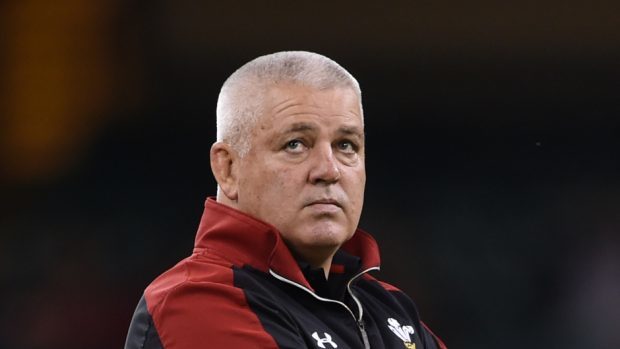It was like being in a gladiatorial arena. With a mob of testosterone-packed, partisan South African fans screaming their backing for their rugby brethren and flicking cigarette ash and crumbs of biltong onto the media pack sitting below them at King’s Park in Durban.
In the build-up to the Second Test of the 1997 series, the reigning world champions were desperate to atone for losing the first match against the British and Irish Lions the previous week and the atmosphere throughout the country was at best, feverish, at worst absolutely frightening.
I still recall reading a paper on the Saturday morning, which was emblazoned with the words “Bokke, Bokke, Bokke” on the front page and featured messages of goodwill and support from all manner of celebrities and politicians in the Cape, including the president Nelson Mandela.
The coverage was similarly splashed all over the TV and radio stations and it made you realise how important the oval-ball game is in the Republic. In that aforementioned newspaper, a horrifying story about a family of five, including three small children, being killed by AK47-wielding robbers was relegated to six paragraphs on page 11. All that seemed to matter for most of the population was the prospect of 15 big, burly chaps dominating and defeating their British and Irish rivals.
In the event, on an afternoon when the tourists found themselves under siege, and were often on the brink of the abyss, conceding three tries and having their defensive capabilities tested to the limit, the Lions were fortunate that the Springboks squandered numerous opportunities, the majority of them through the kicking frailties of stand-off Henry Honiball, who couldn’t convert any of his team’s touchdowns and also missed several penalties.
In contrast, his opposite number, Neil Jenkins, kept slotting the ball through the posts and with the contest on a knife-edge at 15-15, Jeremy Guscott emerged as the match-winner with a drop goal in the 77th minute, which sparked a crescendo of vitriol and venom from most of the crowd.
In advance of the tour, Jim Telfer and Ian McGeechan’s players were widely regarded as being no-hopers – with an editorial in the SA Sports Illustrated affirming: “The British Lions have arrived in South Africa rated as nothing more than rank underdogs.
“They are a nice bunch of blokes who are making a bit of history and, in so doing, winning friends rather than matches”.
This is merely a mild indication of what the Class of 2021 can expect when they venture to Johannesburg, Pretoria and Cape Town as part of a revised schedule next month. Forget about the recent Six Nations Championship and the often thrilling tussles which permeated that tournament.
This is a challenge on a completely different level and, once again, Warren Gatland and his personnel will be tackling the players who lifted the World Cup two years ago and have amply proved themselves on the global stage.
It’s obviously heartening there is such a significant Scottish contingent with eight of Gregor Townsend’s troops in the mix, although the chances are that only three or four of them will be in the mix for the First Test on July 24.
The series will be fought out in strange circumstances, given the probable absence of crowds. Due to the pandemic and the need to remain in biosecure bubbles, the tourists will remain in Johannesburg for the first three games of the schedule, playing the first two in the city and the third in Pretoria which is less than an hour away.
They will then head to Cape Town for matches against South Africa A and the Stormers and the first Test against the Springboks, prior to returning to Johannesburg where the final two Tests will be staged at the FNB Stadium in Soweto, where football’s 2010 World Cup final was staged.
As matters stand, the SA authorities are desperate to have crowds inside the venues and have been in prolonged talks with their government. They recognise that the Lions clashes offer a massive financial incentive at a time when sport is struggling and they are also keen to woo as many visitors from Britain and Ireland as possible, despite continuing concerns about travel restrictions, vaccine passports and social distancing.
None of these factors applied back in 1997. Following the momentous victory in Durban, a large group of us wandered along the sea front and were blessed with spectacular pyrotechnics – and triple-forked lightning – as Nature unleashed a prolonged storm in the midst of the Indian Ocean.
There was plenty of good-natured banter between fans and I even met the renowned England forward Dean Richards in a restaurant where he was happy to talk to supporters and admit he had been as amazed as anybody else by how the Lions had triumphed despite being put through the wringer.
That campaign was the last gasp of the amateur era, as the prelude to professionalism transforming rugby and bringing both positives and negatives. I’m looking forward to the Lions contests and expect Gatland’s team to win at least one of the three Tests, but I’m not sorry I won’t be living out of hotels and grappling with airport queues and cabbies for four weeks.
TV will have to suffice and I suspect that will be true for most of us.
